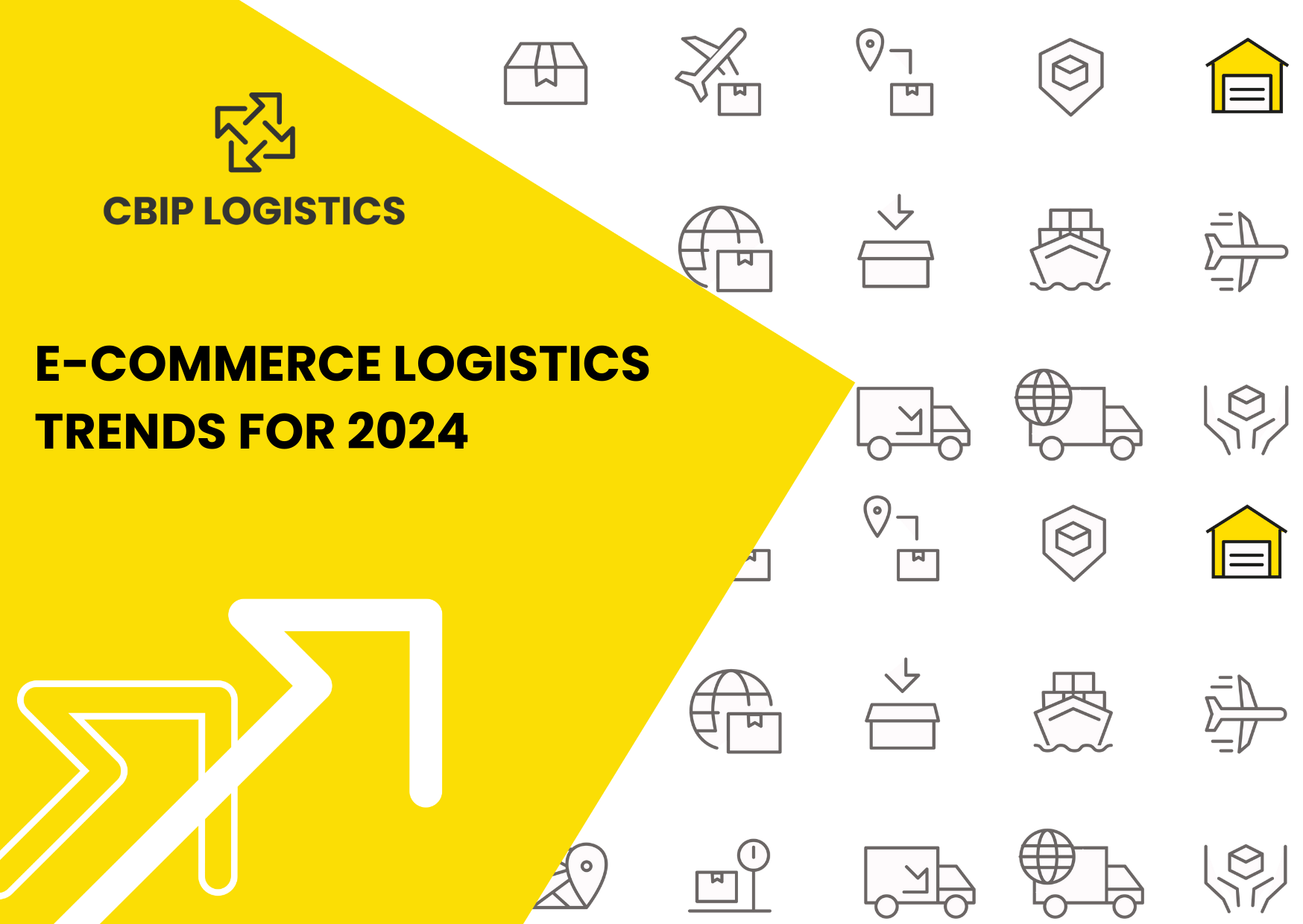E-Commerce Logistics Trends for 2024

In 2023, the logistics industry was defined by geopolitical issues, rising transportation costs, and worldwide inflation.
Going into the new year, many of the same issues persist, while some new trends are emerging. In 2024, it looks like the defining trends in e-commerce logistics will be:
- In customer service: Increased focus on returns management
- In manufacturing: Supplier diversification and other risk mitigation tactics
- In last-mile: Emphasis on fast and precise last-mile delivery
- In technology: Popular use of AI to aid planning and logistics
- In logistics partners: Focus on working with logistics providers with global reach and personalized services
Read on to see how these trends may play out in the new year.
4 defining e-commerce logistics trends for 2024
Retailers looking to give better customer service will focus on returns management
In the past couple of years, user experience has improved in such areas as mobile shopping, This has been great for demand, seeing as consumers are more than ever always on smartphones — it only makes sense that they’d love shopping on the phone too.
However, even if mobile shopping contributes to more purchases, it also contributes to impulse purchasing. Oftentimes, impulse purchasing means a higher number of returns.
Return logistics is a huge part of the e-commerce game — retail returns in 2023 are expected to surpass 620 billion. Customers are increasingly showing their preference for a hassle-free return experience. Knowing this, how will e-commerce retailers make a notoriously difficult process simpler to improve customer retention?
The answer is twofold. First, some companies are teaming up with third parties who can pick up returns from customers.
One of the major pain points for customers is having to bring their returns to the location of the carrier to return their package. Retailers are partnering up with third parties to pick up returns from customers, such as what UPS and USPS are doing with a few select retailers.
The second part of making returns more customer-friendly is getting rid of the need for a printed label. Programs like Amazon’s no-label no-box returns can be incredibly attractive to consumers who don't own a printer - not to mention more eco-friendly for cutting down on paper and box waste.
Read About CBIP's Adaptable 4PL Logistics Services
Supply chain risks will push retailers to diversify suppliers
Ever since COVID poked a hole in the idea of the just-in-time inventory model, retailers have gotten a lot more cautious about how much inventory they keep on hand, and where those products are coming from.
Nearshoring is a huge buzzword nowadays, and it is already happening on a larger scale in industries like the automotive industry.
Recently, we’ve been hearing a lot about regions like Latin America increasing their manufacturing, particularly for North American companies. In particular, Argentina, Brazil, Chile, and Mexico have been receiving a lot of FDI in the past year or so.
Although this trend is well underway, it looks like the region is poised for even more growth in the next few years - a poll of US companies showed that 50% of those who were not already manufacturing in Latin America were planning to shift toward doing so over the next 5 years.
On the other side of the globe, manufacturing is branching out throughout Asia.
China is still manufacturing a large portion of the world’s goods, but China is no longer totally dominant in exports. Other nations in South East Asia — Vietnam, the Philipines, Thailand, to name a few — have gained some of the ground China lost and continues to lose post-pandemic.
RELATED: How to Make Your Supply Chain More Resilient to Disruptions in 2024
Utmost emphasis on fast and precise last-mile delivery
The trend of getting better and faster last-mile services has been years in the making now, spurred on by new customer demands and logistics challenges brought on by COVID.
However, whereas this trend began to provide better delivery services and satisfy customers, it’s now become a necessity to stay in the black. With inflationary pressures continuing and the cost of transportation remaining high, totally optimized last-mile logistics is no longer a bonus- it's a necessity.
Last-mile providers are turning to AI solutions to optimize delivery, and retailers are using whatever cost-cutting tricks they can to get the job done under budget, from intermodal shipping to rethinking the carriers they use.
Popular use of AI to aid planning and logistics
E-commerce companies are moving towards smarter solutions that can integrate with other elements of logistics.
AI can be used for several different parts of the logistics chain, from using predictive analysis to estimate inventory needed and demand forecasting, to planning the best delivery route accounting for local traffic. Yet, studies show that only around 26% of logistics providers are using AI.
In spite of the low figures, this number is sure to grow in the next couple of years as AI software becomes more widely accepted and trusted.
Focus on providers with global reach and individualized services
As you expand, it gets exponentially more challenging to manage your logistics operations.
Particularly if you want your company to set up operations abroad, you need an experienced partner to walk you through everything.
At CBIP Logistics, we have been in the e-commerce logistics business for nearly ten years. As a global 4PL provider, the last few years have been full of ups and downs and learning experiences for us.
These years of experience make us sure that no matter what 2024 looks like, we will be able to continue giving our clients the best personalized logistics service they could ask for.
If you are interested in making 2024 the year that you scale your business and partner up with a logistics provider who can design your logistics and guide you every step of the way, reach out to us. We would love to chat with you.






